Trump the campaigner could help Republicans most in battle to hold Senate
The president may be most helpful to the GOP in the battle for Senate control.
Republicans will have to choose carefully where to use President Donald Trump as campaigner in chief in the party's fight to keep control of Congress in this year's midterm elections, strategists say.
The president has shown repeatedly his tendency to go rogue.
And while his off-the-cuff remarks appeal to his base –- including rural and working-class voters who helped to put him in the White House -- his freewheeling personality could turn off some independent swing voters.
Where the president may help Republicans most is in the battle for the Senate, which has become a bigger focus for the GOP as concerns grow that a blue wave could give Democrats control of the House.
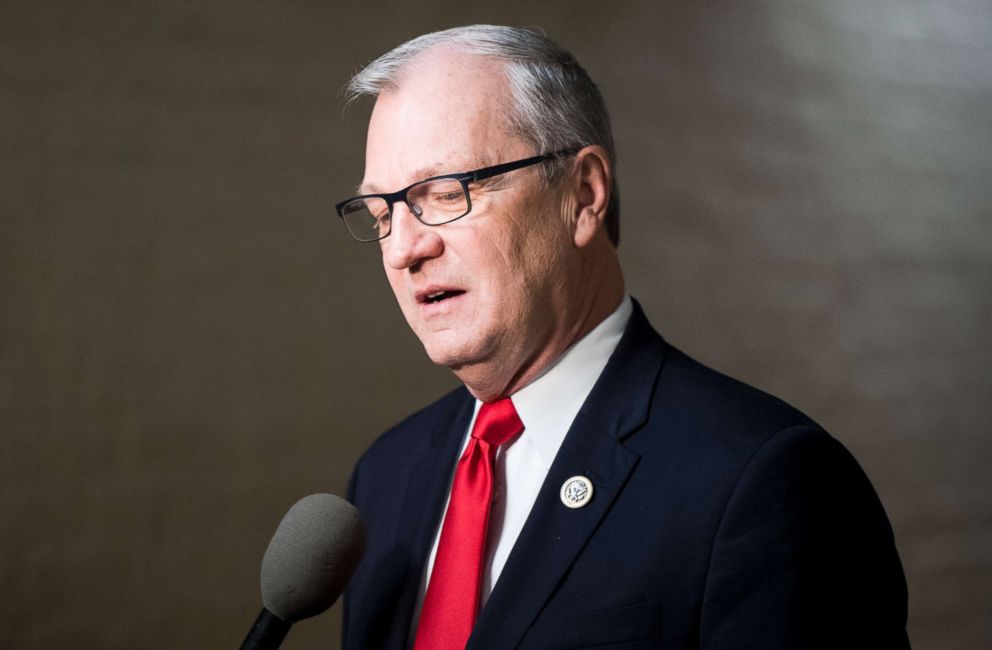
Where he could have the most impact
Republican Rep. Kevin Cramer of North Dakota, said he has already asked the president to campaign for him in his challenge to his state's Democratic senator, Heidi Heitkamp.
Cramer said it was Trump who asked him, multiple times, to run for the Senate.
Given the increasingly dim prospects for the GOP in the House, there’s “an additional incentive for [Trump] to shore up his legacy legislatively by making sure he continues to have the Senate and maybe by even a little of a larger margin,” Cramer said. “He’s smart enough to notice where he’s doing well and where his capital can provide the most leverage.”
Trump won North Dakota by 36 points in 2016. It’s one of 10 states he won where Democratic senators are on the ballot this November.
Cramer, a three-term lawmaker, said he “chuckled” when he saw Heitkamp quoted in The Washington Post saying Trump asked her to change parties when she met with the then-president-elect in December 2016 at Trump Tower.
“I did find it a little bit amusing that she felt the need to enhance her Trump credentials," Cramer told ABC News. "There are some places in the country where Republicans are trying to reduce them and in North Dakota we have a Democrat trying to increase them. ... I find it reassuring I’m on the right side.”
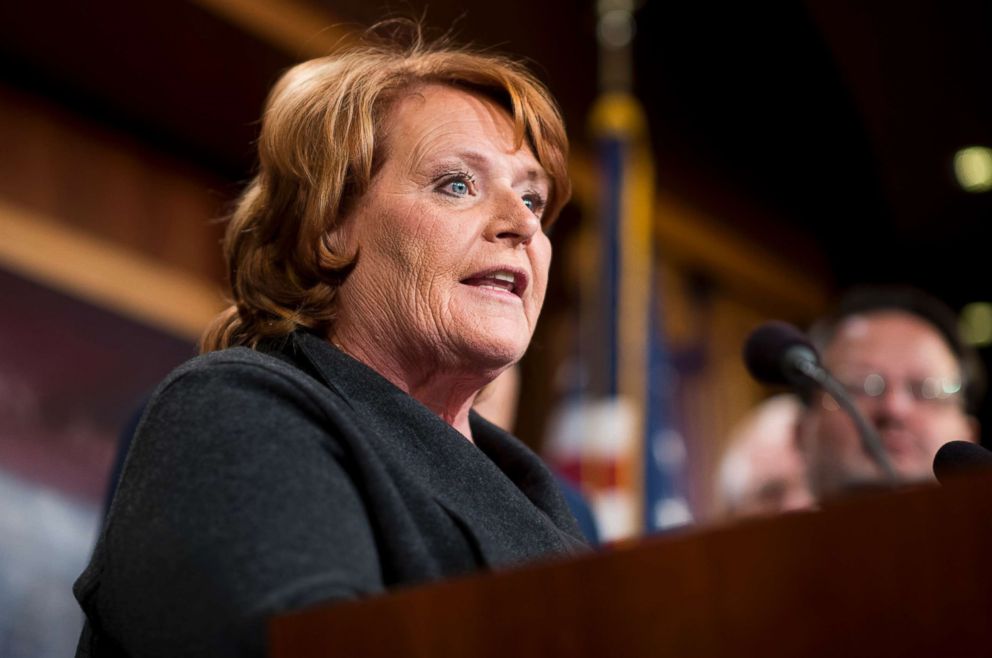
A tougher road for Republicans in the House
Recent events have raised concerns among Republicans that Democrats may win control of the lower chamber.
House Speaker Paul Ryan’s retirement announcement this week adds to the record number of GOP representatives choosing not to run again and comes after Democrat Conor Lamb’s win in last month’s Pennsylvania special election.
Lamb's victory came despite the president's stumping for his Republican opponent, Rick Saccone, and regardless of Trump's having won the district by 20 points in 2016.
That Republican loss along with Trump’s lower approval ratings in some GOP-held districts show why House Republicans in close races may want to distance themselves from the president in the midterms.
“If you’re a Republican member representing a swing or marginal district, I suspect it would not be very helpful for the president to campaign for you,” retiring GOP Rep. Charlie Dent of Pennsylvania told ABC News. “If you’re in a marginal district where the president is not performing well, why would you bring him in?”
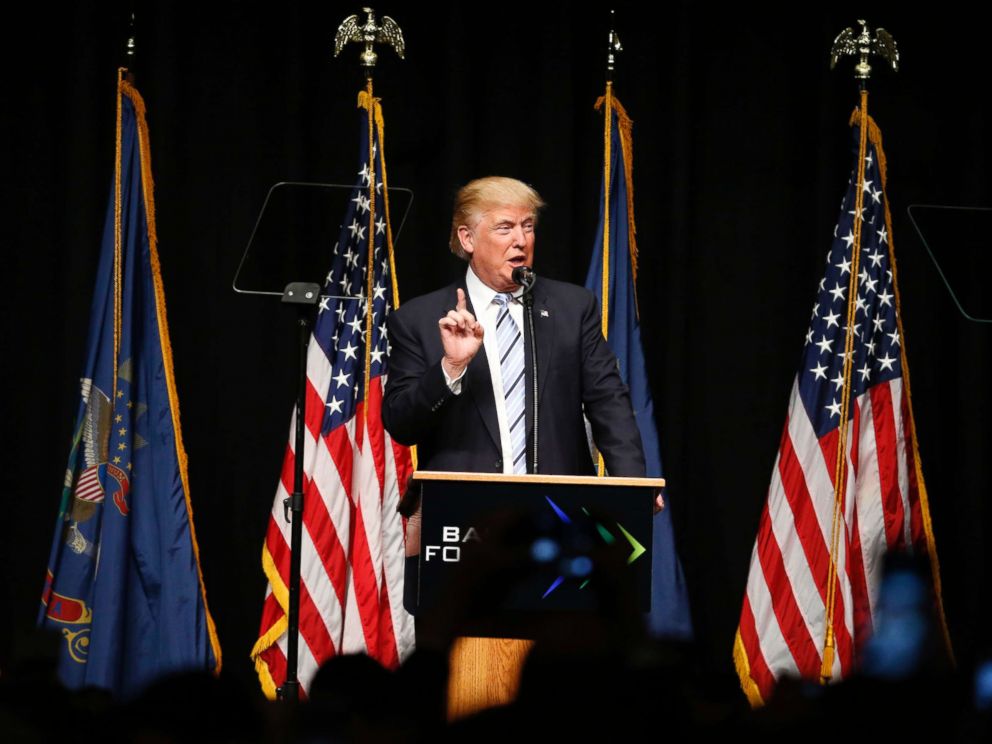
Josh Holmes, president of Cavalry LLC and former chief of staff to Senate GOP leader Mitch McConnell, said that while Trump “might be a liability in a lot of suburban areas, particularly a lot of suburban House districts,” he would be well-received in statewide contests, particularly in red states with Democratic senators on the ballot.
“Most of the top-tier Senate races are much more likely to be responsive to a visit from President Trump than the rest of the county at large,” Holmes said.
Willing to get involved and raise money
As with Trump's backing Cramer for Senate in North Dakota, the president has shown willingness to get involved in statewide campaigns.
He was in Missouri in mid-March to fund-raise for Republican Josh Hawley, who is challenging Democratic Sen. Claire McCaskill in a state that the president won by 19 points in 201601.
Trump also gave a boost to the most endangered GOP incumbent senator, Dean Heller of Nevada, last month when he helped persuade Danny Tarkanian to run for the House instead of challenging Heller in a primary.
And the president literally got into the middle of West Virginia’s GOP Senate primary, sitting between two of the contenders at a meeting in White Sulphur Springs on Thursday. He also didn’t hold back when it came to criticizing Democratic incumbent Joe Manchin.
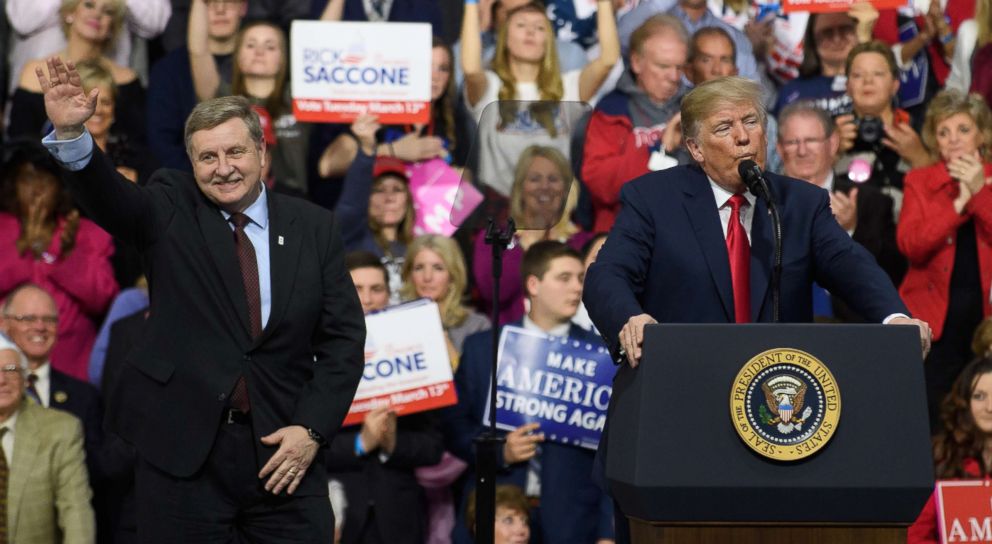
“You're going to have a chance. You're going to have a chance to get a senator that's going to vote our program,” Trump told the crowd. “Joe Manchin, he’s really not helped us.”
Trump has another strength for Republicans, his ability to fund-raise.
He brought in $32 million for the National Republican Congressional Committee at its March dinner.
“That’s his biggest role, go out there and raising money,” Dent said. “It’s pretty clear to me that this 2018 midterm election cycle will be a referendum on this president and his conduct in office.”
Democrats say the president’s unpredictability can help them.
“I think he’s a large personality that takes up a lot of oxygen, a lot of bloviation. That is a constant," said John Lapp, a former executive director of the Democratic Congressional Campaign Committee. "I think it’s a question. ... Is it a referendum on Trump in every district, some districts or somewhere in between? And my guess is the answer is somewhere in between.”

Helping those who helped him
As to when and where the president will be in the fall of 2018, expect him to help those who helped him.
Cramer recalled when the president was in Bismarck, North Dakota, last September for an energy speech.
“One of the things he told me afterwards is that ‘I never forget Kevin. I never forget,’” Cramer recalled, saying the president was referring to his early endorsement of Trump in the GOP presidential primary.
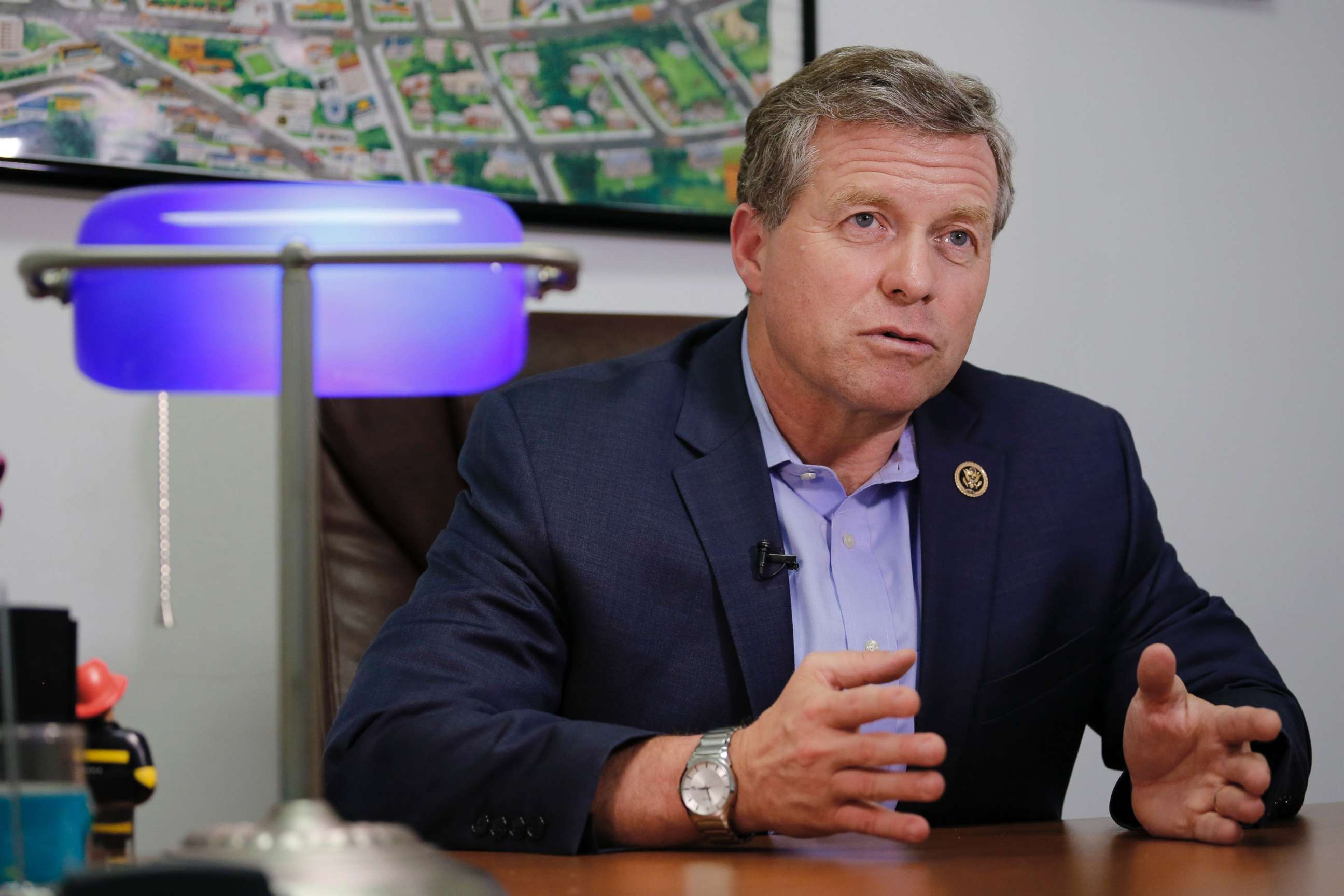
Cramer said he told the president he didn’t support him for political points but because it was best for the country.
“He said, ‘I still never forget,’” Cramer said. “It was very Donald Trump.”
ABC News’ Benjamin Siegel contributed to this report.